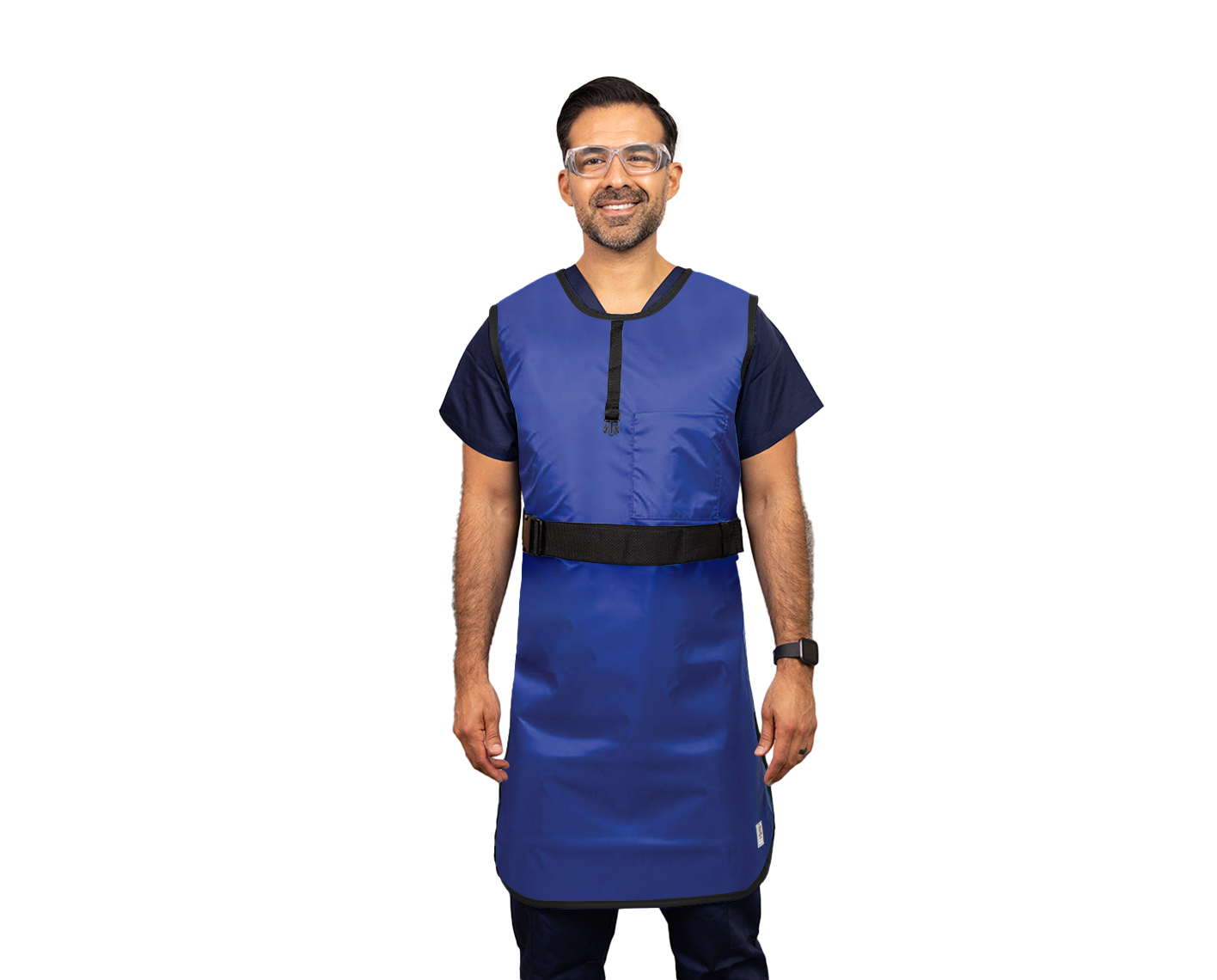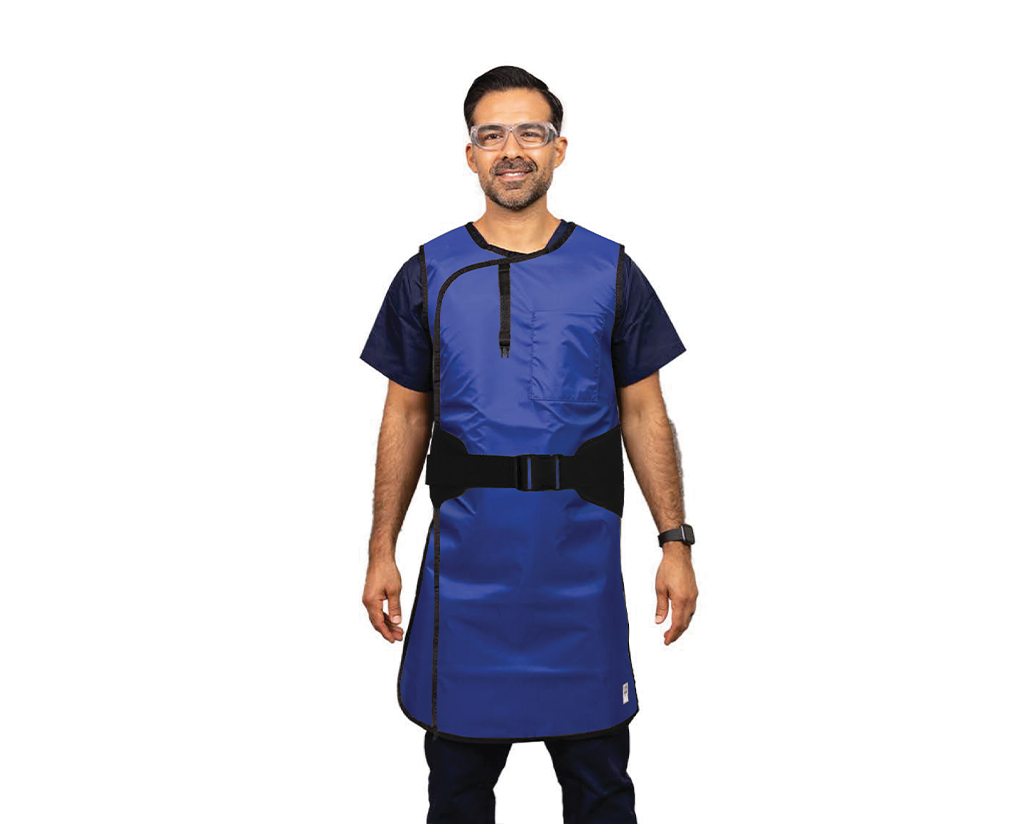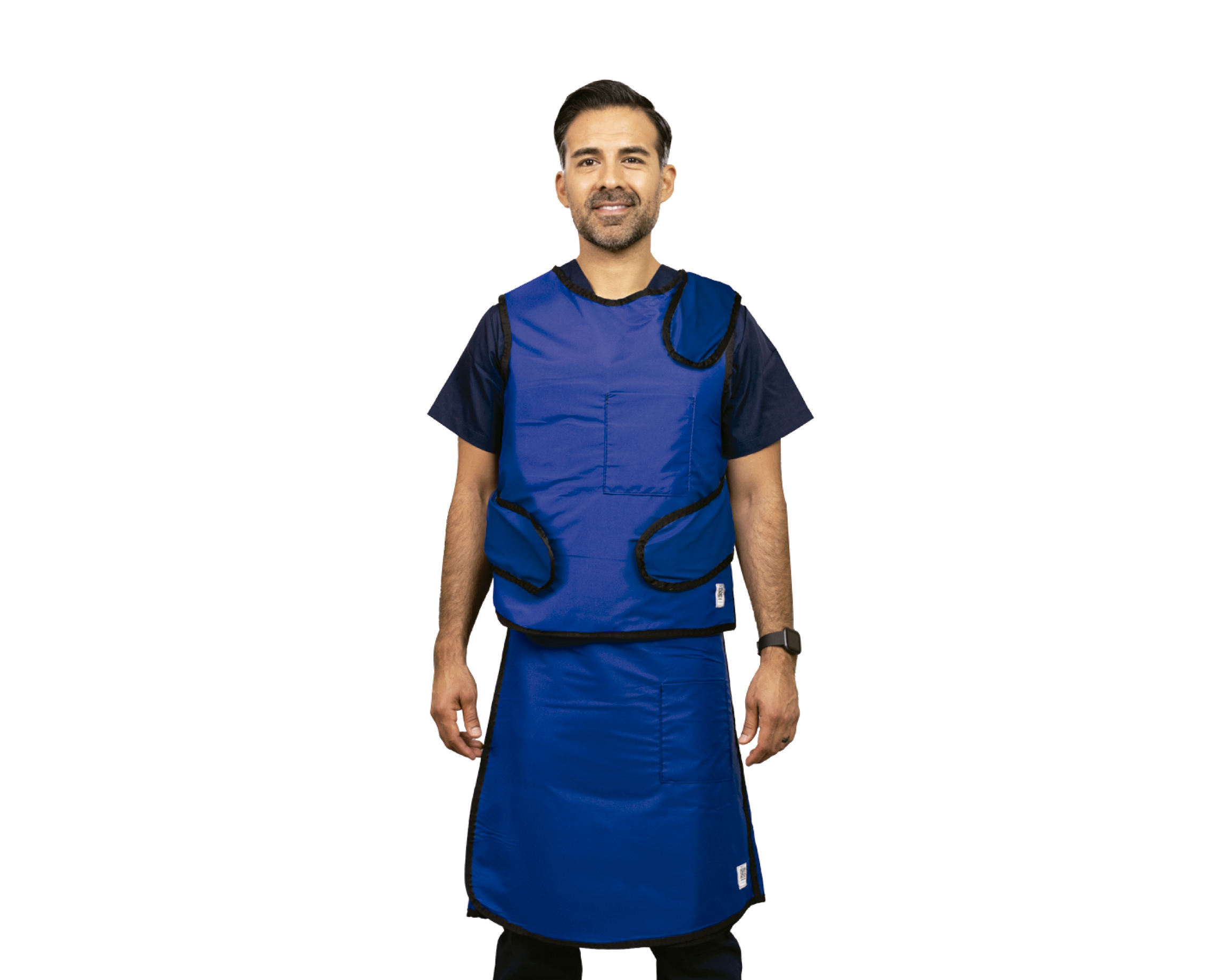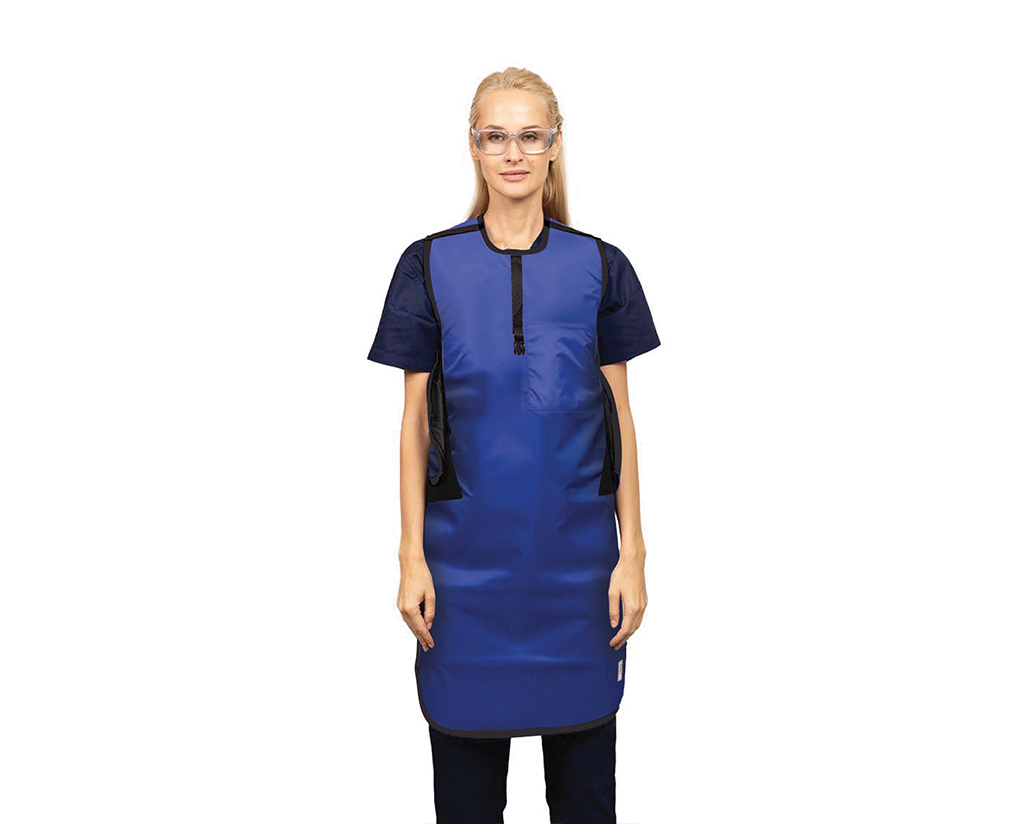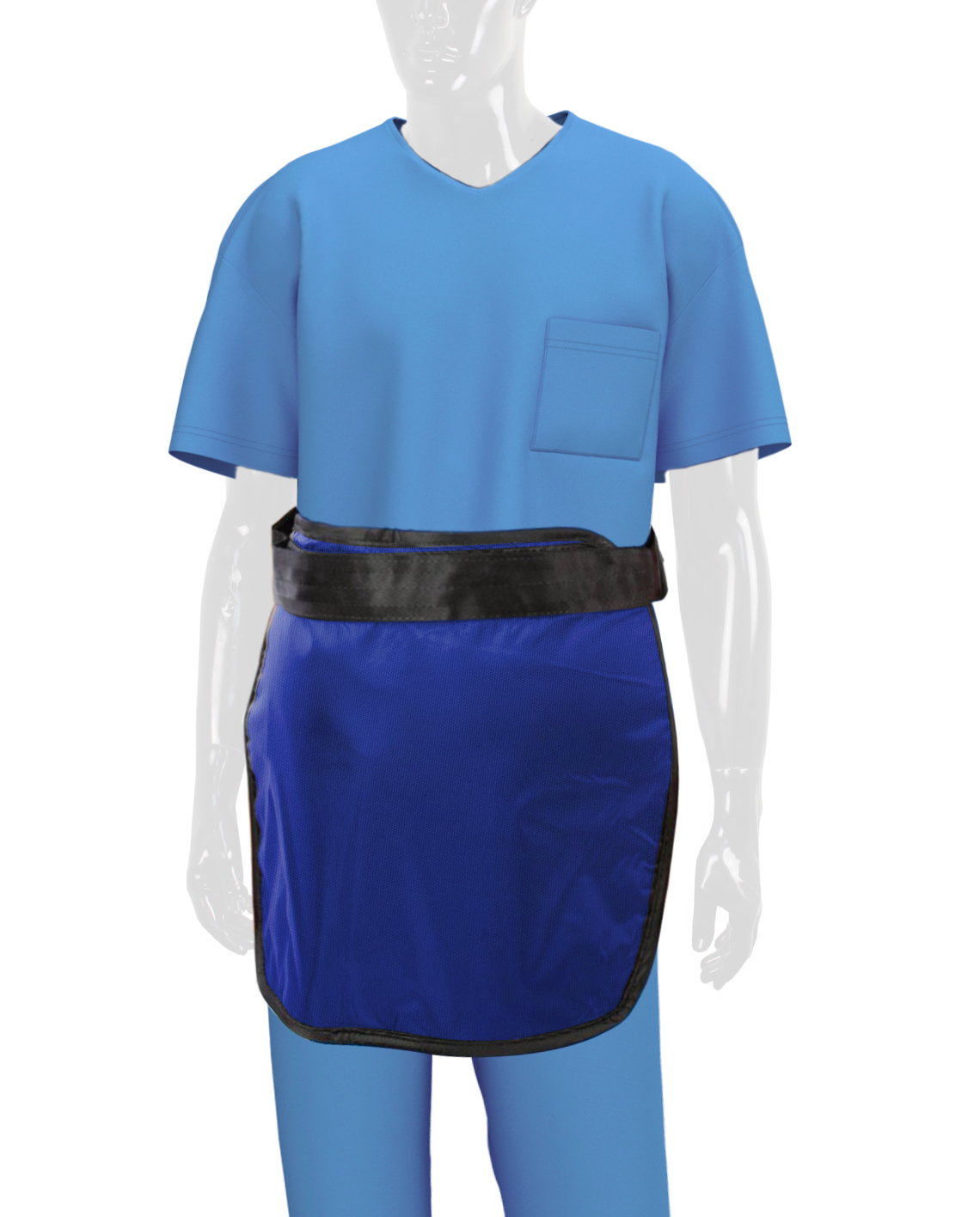At Phillips Safety, we offer a comprehensive range of radiation protective aprons, ensuring the highest quality and protection for your needs. Our aprons, made in the USA, showcase our utmost care and attention to detail.
Explore our three types of lead aprons, each designed to cater to different requirements and preferences:
Quick Ship Radiation Aprons
Our Quick Ship Radiation Apron category includes aprons that are in stock and ready to ship within 24 hours or less. Available in standard sizes from XS to XXL in blue and black, these aprons come in two core materials:
◼ Lightweight Lead Core Material
◼ Lead-Free Core Material
These aprons are available in various styles, including Flexiback Frontal and Shirt and Vest styles. Please note that Quick Ship aprons are not customizable.
Axion Core™ Lead-Free Radiation Aprons and Garments
Phillips Safety introduces Axion Core™, our next-generation line of lead-free radiation aprons and garments. By leveraging new advancements in manufacturing technology, Axion Core delivers the lightest weight core on the market today—without compromising shielding performance or safety. We have developed three distinct core options—Axion Core 1000, 2000, and 3000—each engineered with a unique blend of bismuth, antimony, and rare earth elements. These innovative lead-free solutions vary in weight to meet different user needs but never sacrifice protection, giving medical professionals the perfect balance of comfort, durability, and performance while ensuring the highest safety standards in radiation shielding.
Customization and Shipping
All Phillips aprons are manufactured in the USA, guaranteeing top quality and durability. While our Quick Ship aprons are ready to ship within 24 hours or less, custom aprons ship in 2-5 business days. Our custom aprons can be tailored to your specific measurements and preferences, ensuring a perfect fit and optimal protection.
Choose Phillips Radiation Protective Aprons for reliable, high-quality radiation protection that meets your needs
